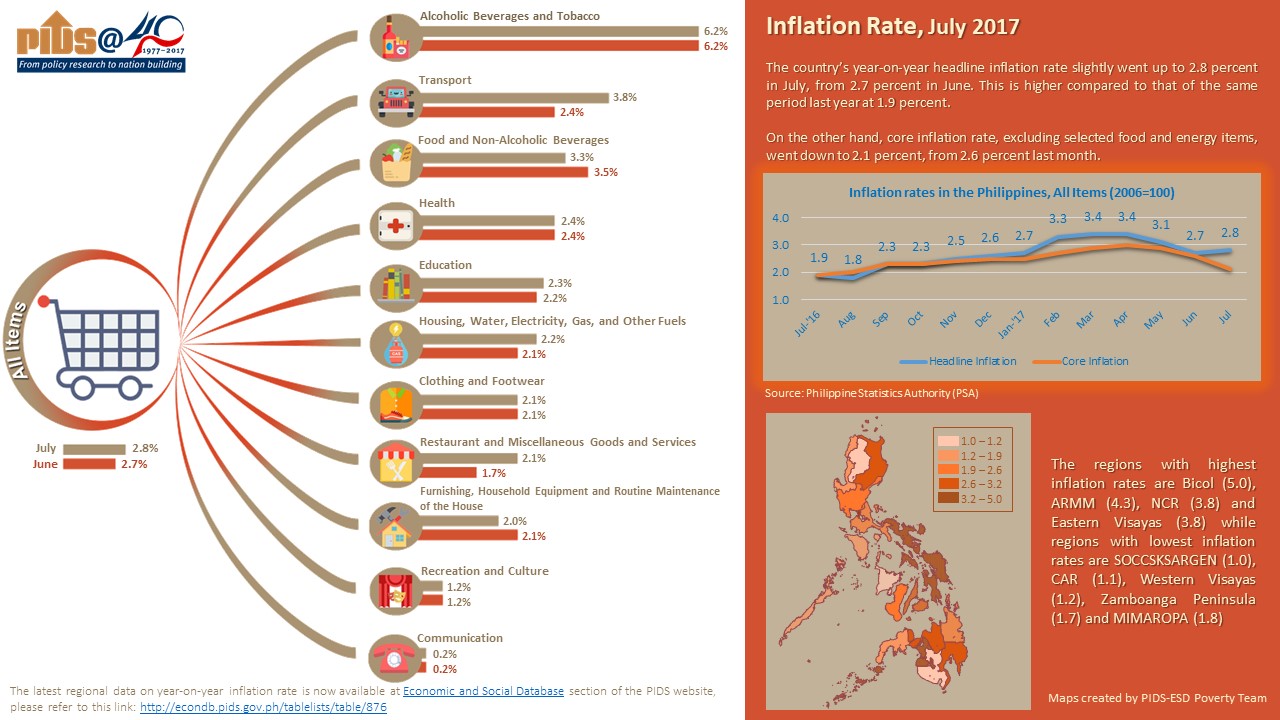BOOK
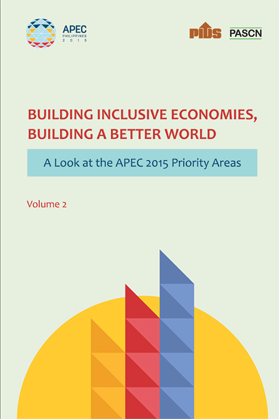 PIDS Book 2017-02: Building Inclusive Economies, Building a Better World: A Look at the APEC 2015 Priority Areas (Volume II) PIDS Book 2017-02: Building Inclusive Economies, Building a Better World: A Look at the APEC 2015 Priority Areas (Volume II)
by Philippine Institute for Development Studies and Philippine APEC Study Center Network
The Department of Foreign Affairs, as chair of the Asia-Pacific Economic Cooperation (APEC) 2015 National Organizing Council Committee on Host Economy Priorities and as APEC National Secretariat, commissioned the Philippine Institute for Development Studies, through the Philippine APEC Study Center Network, to undertake research on the identified priority areas of APEC 2015 in order to gather expert analyses and insights that can serve as inputs to the various discussions during the summit as well as help advocate domestic reforms in the longer term.
This two-volume publication consists of policy papers written under the Research Project APEC 2015. The project explores the four priority areas of APEC 2015, namely, enhancing regional economic integration, fostering small and medium enterprises' (SMEs) participation in the regional and global economy, investing in human capital development, and building sustainable and resilient communities. Volume 2 focuses on fostering SMEs' participation in the regional and global economy, and building sustainable and resilient communities. It is made up of papers that tackle mainstreaming of SMEs, social enterprises and employment, women's participation in the economy, food security, SMEs' resilience to natural disasters, and social protection. Click here to download the electronic copy of the book.
POLICY NOTE
PN 2017-15: Understanding the Principles Underlying the Philippine
Competition Law
by Erlinda M. Medalla
This Policy Note revisits the principles of the Philippine Competition Act as a breakthrough legislation intended to promote free and fair competition in economic activities in the country. It advances the idea of fair play, which means that the competition policy should prevent firms from obtaining inequitable market power by excluding others from playing. The study recommends the enforcement of competition rules, such as in the provision of access to essential facilities like transmission lines, the allocation of frequencies in telecommunications, and the opening up of segments that are no longer natural monopolies. It also urges the government to promote competition and, where necessary, good regulation to assist the market to produce competitive outcomes. Click here for the full article.
ECONOMIC ISSUE OF THE DAY
EID 2017 Vol. XVII No. 2: The Triple Burden of Disease
by Danica Aisa P. Ortiz and Michael R.M. Abrigo
Communicable and noncommunicable diseases have been the primary culprits of deaths all over the world in the last two decades. However, in recent years, the prevalence of disease caused by rapid urbanization and industrialization also increased resulting to the triple burden of disease. This Economic Issue of the Day (EID) explains the concept of triple burden of disease and its implications for public health policy. Addressing the burden requires improvements in the health system, such as effective service delivery network, functional and strategically located health facilities, and adequate human resource, complemented by effective health coverage policies that ensure access to health care. Know more about the triple burden of disease in this EID. Click here for the full article.
DISCUSSION PAPERS
- DP 2017-25: Chronic Food Poverty in the Philippines
by Connie B. Dacuycuy and Lora Kryz Baje
There are few studies in the Philippines that analyze poverty dynamics. Studies that analyze the effects of weather variability on food poverty dynamics are even fewer. Given that there are some sectors that are more adversely affected by the changing weather patterns, a study analyzing the effects of weather variability on poverty is essential. Using a simple spells approach to understand the food poverty dynamics in the Philippines, this paper finds that deviation of rainfall from its normal values and other key variables such as education, employment, assets, and armed conflict affect chronic food poverty. A discussion of some inputs to policies is provided. Click here for the full paper.
- DP 2017-24: Chronic and Transient Poverty and Weather Variability in the Philippines: Evidence Using Components Approach
by Connie B. Dacuycuy and Lora Kryz Baje
Weather is an integral part of our life and weather shocks can have severe implications on income and household consumption. Given evidence that points to altered patterns of weather parameters resulting from climate change, this paper aims to contribute to poverty studies in the Philippines by analyzing the effects of geographic attributes, like weather variability, on chronic and transient poverty. Based on the estimates of the generalized linear model, higher than normal rainfall contributes to a modest increase in chronic total and chronic food poverty in both urban and rural areas. In addition, asset ownership and college education have the most impact on the reduction of both types of poverty. Click here for the full paper.
|
August 24, 2017, 9-5PM
ERIA-PIDS-MinDA-AS Public Symposium on Building ASEAN Socio-Cultural Community and Nation Building
Venue: Marco Polo Hotel,
Davao City
September 5, 2017, 11-1PM
Press Conference on the 2017 DPRM (Theme: Strengthening Decentralization for Regional Development)
Venue: Philippine Information Agency, Quezon City
September 7, 2017, 9-5PM
Third Mindanao Policy Research Forum on Strengthening Decentralization for Regional Development
Venue: Ateneo De Zamboanga University, Zamboanga City
September 7, 2017, 12-1PM
Regional Press Conference on the 15th Development Policy Research Month (DPRM) Celebration
Venue: Ateneo De Zamboanga University, Zamboanga City
September 19, 2017, 9-5PM
Third Annual Public Policy Conference on Critical Perspectives on Federalism for Regional Development
Venue: Marco Polo Ortigas,
Pasig City
September 21, 2017, 9-5PM
PIDS-ERIA Public Symposium on Economic Integration and Nation Building
Venue: Marco Polo Ortigas,
Pasig City
October 18, 2017, 9-5PM
PIDS-ANU Forum on Regulation and Governance in the Philippines: Development Policy Challenges for the New Administration
Venue: Marco Polo Ortigas,
Pasig City
.jpg)
The Philippine Journal of Development is a professional journal published by the Philippine Institute for Development Studies. It accepts papers that examine key issues in development and have strong relevance to policy development. As a multidisciplinary social science journal, it accepts papers in the fields of economics, political science, public administration, sociology, and other related disciplines. It considers papers that have strong policy implications on national or international concerns, particularly development issues in the Asia-Pacific region.
CLICK HERE for the guidelines in the preparation of articles. Submissions and inquiries may be sent to PJD@mail.pids.gov.ph |

 PIDS Book 2017-02: Building Inclusive Economies, Building a Better World: A Look at the APEC 2015 Priority Areas (Volume II)
PIDS Book 2017-02: Building Inclusive Economies, Building a Better World: A Look at the APEC 2015 Priority Areas (Volume II).jpg)
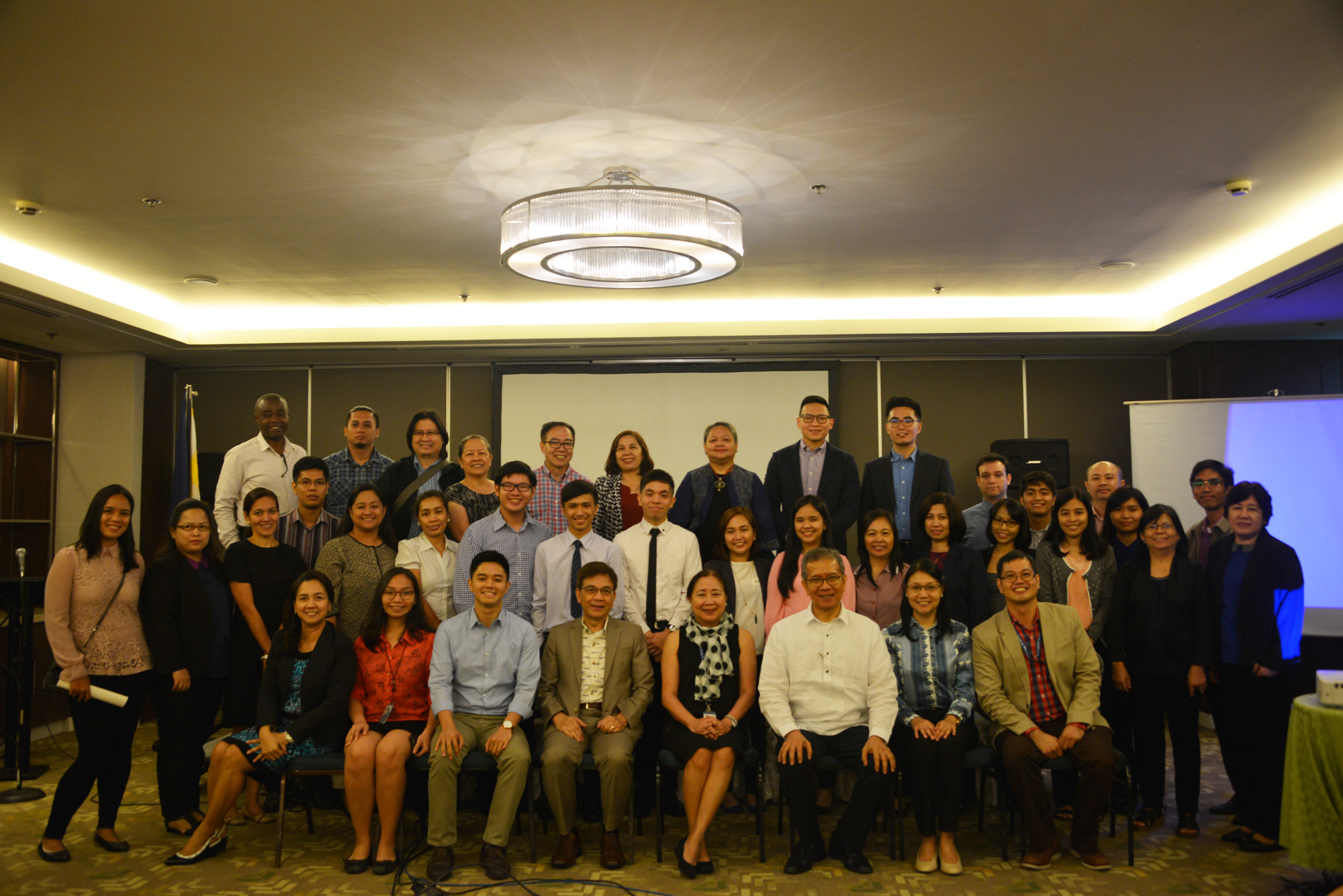 Researchers tackle PH’s major stumbling blocks toward ASEAN integration
Researchers tackle PH’s major stumbling blocks toward ASEAN integration 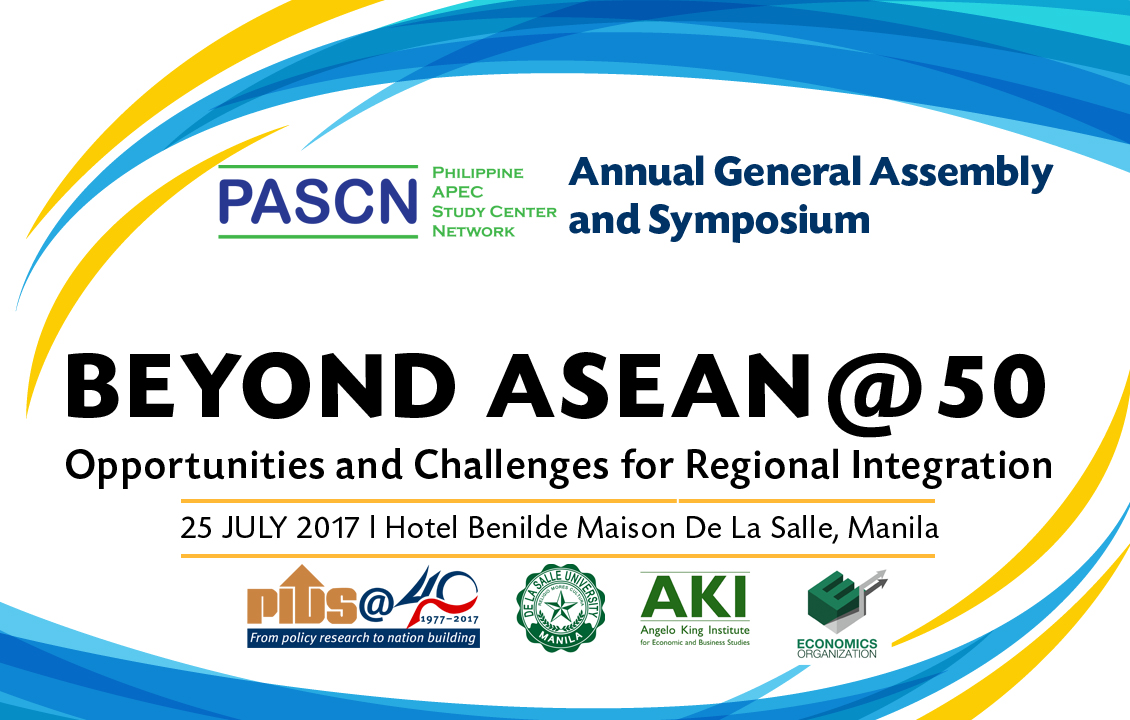 PASCN research institutions convene to tackle ASEAN economic integration issues
PASCN research institutions convene to tackle ASEAN economic integration issues 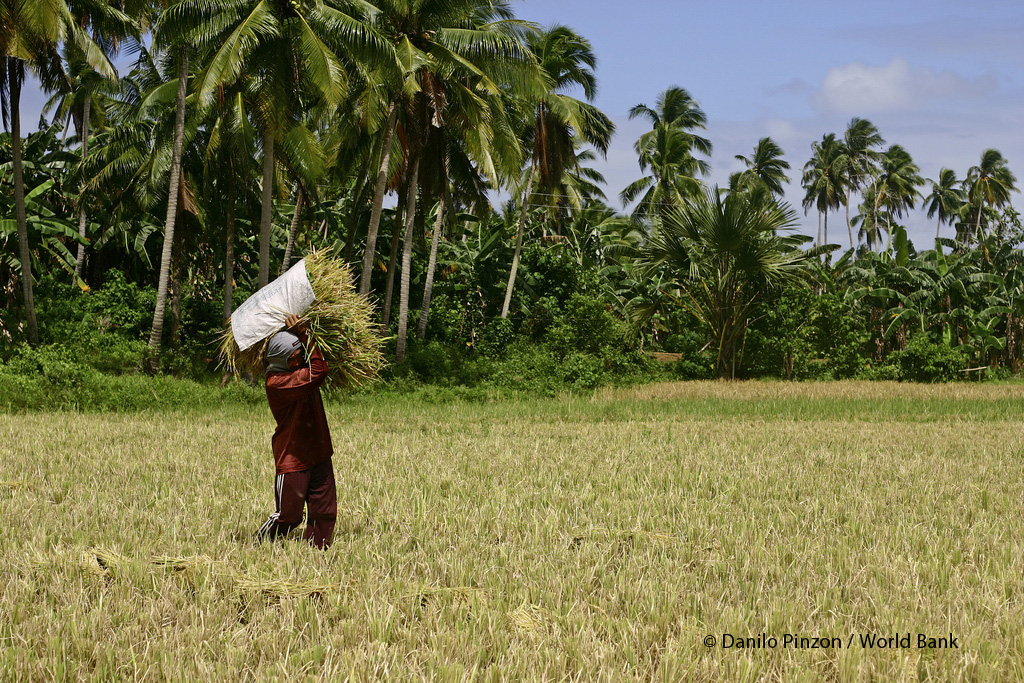 Targeting system of agri-insurance program in PH is problematic – PIDS researchers
Targeting system of agri-insurance program in PH is problematic – PIDS researchers 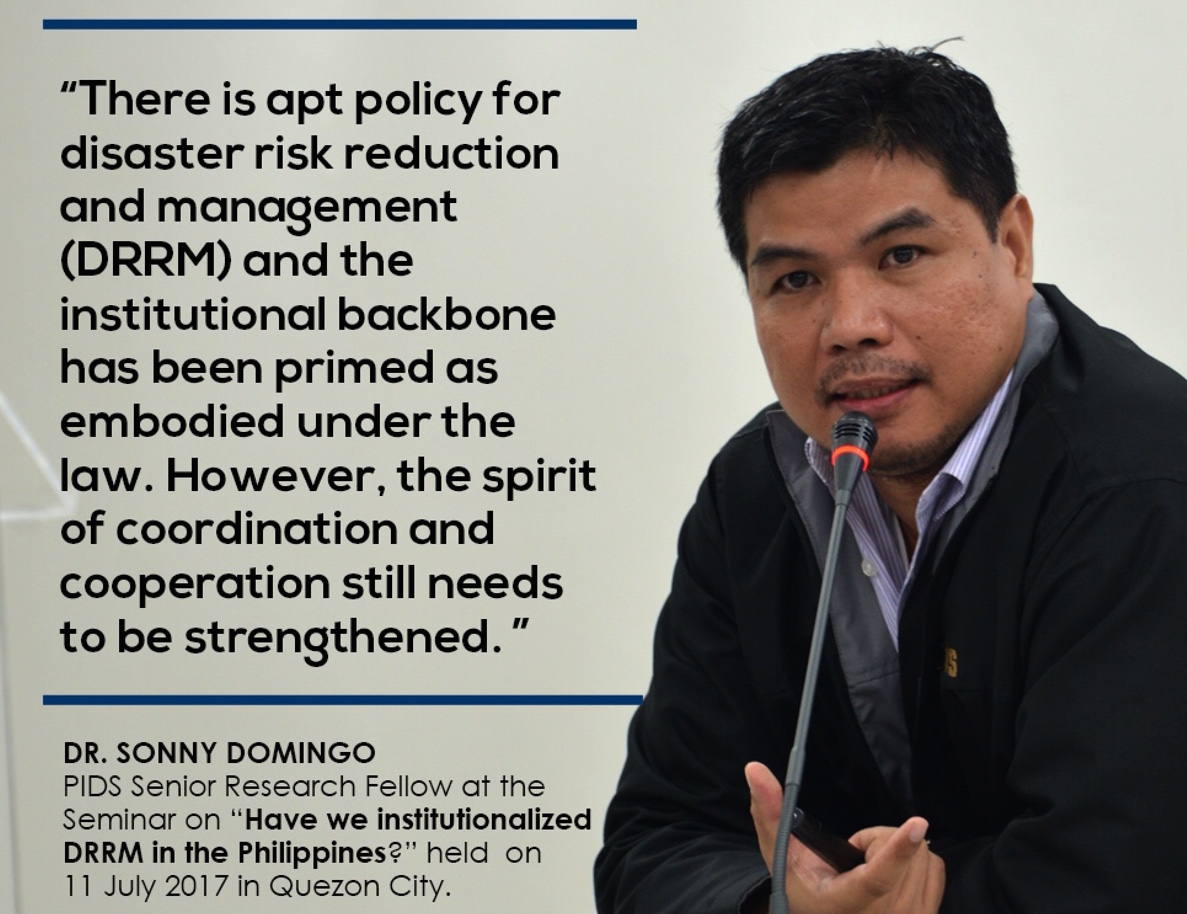 Institutionalization of DRRM in PH? Slowly moving but getting there – DRRM experts, advocates
Institutionalization of DRRM in PH? Slowly moving but getting there – DRRM experts, advocates 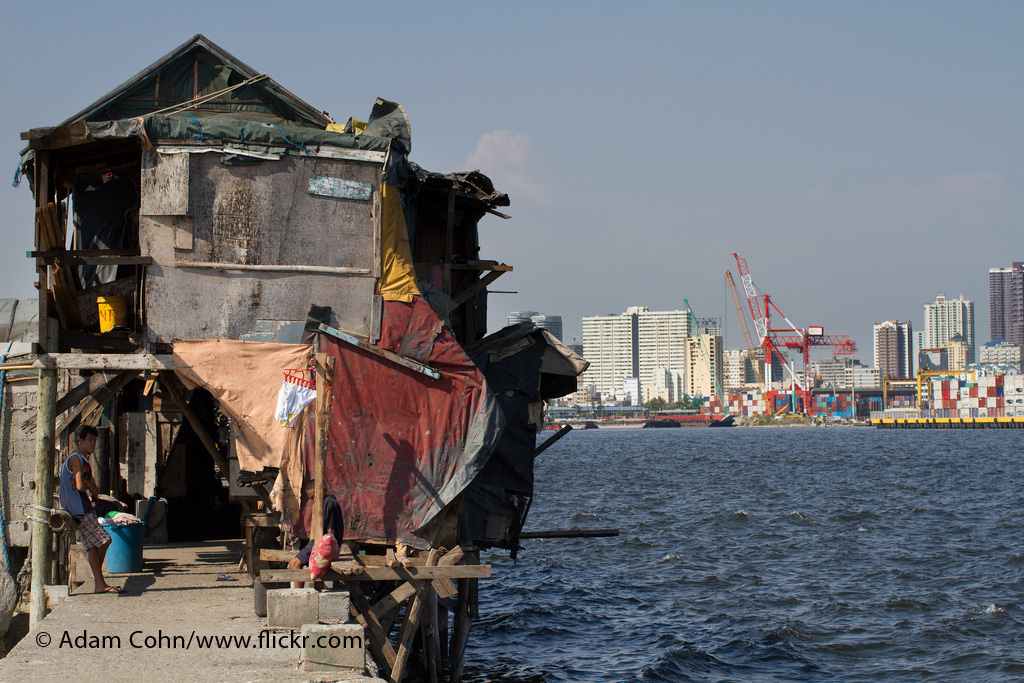 4 out of 10 Filipino households are vulnerable to poverty – PIDS study
4 out of 10 Filipino households are vulnerable to poverty – PIDS study 